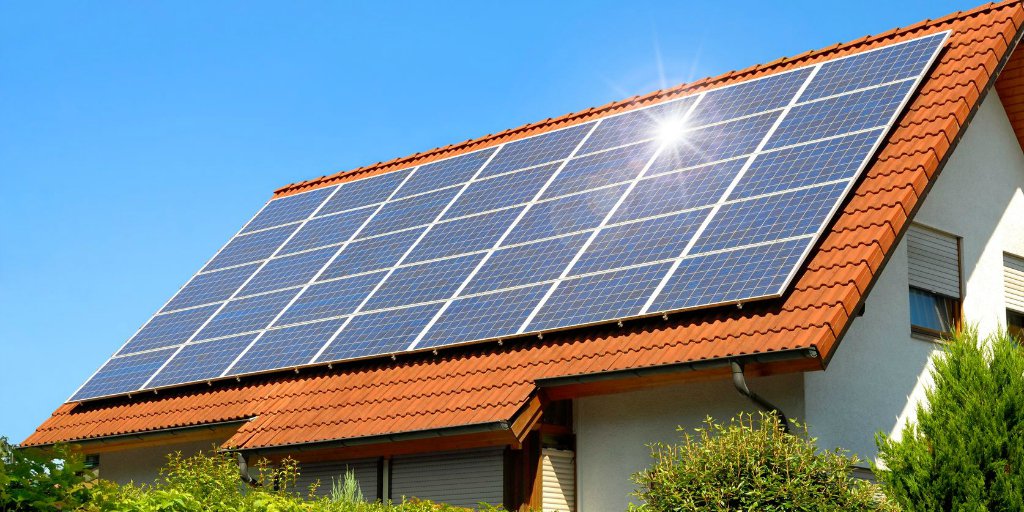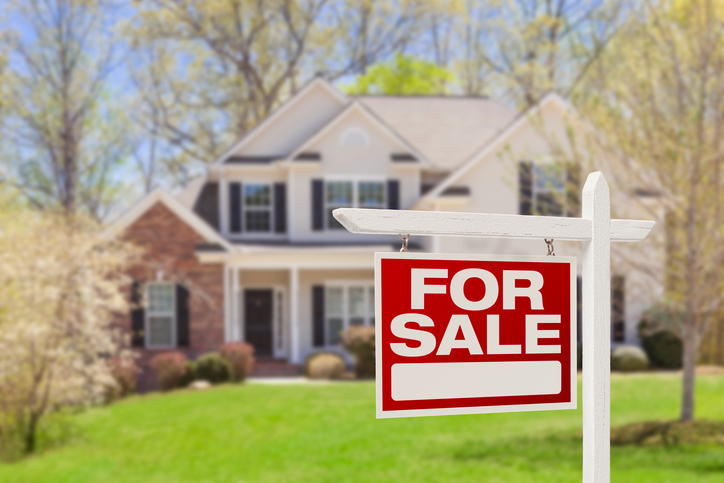Selling A House With solar Lease: How to Sell a House with Solar Lease?
Can I get out of my solar lease early if I sell my home?
Yes, you can get out of your solar lease early if you sell your home. In most cases, it’s as simple as notifying the company that you’re selling your house and transferring the lease to the new owner. However, there may be some costs associated with breaking the lease early.
You can sell your home and move prior to paying off your solar lease. However, you may be able to buy out the remainder of the lease for an early termination fee and own the panels outright.
Consult your real estate agent about whether or not owning solar panels increases a home’s resale value in your area.

What happens to my leased solar panels when I sell my home?
If the home is sold with a solar lease, the new homeowner will inherit all of your outstanding payments. The current owner may be able to negotiate an agreement that allows them to keep using their solar panels on the property, but they would have to pay a monthly charge for their electricity.
Transfer your solar lease to eliminate extra costs when selling
If you’re selling your home, transferring your solar lease can be a complicated process.
Most solar companies will connect you with a service transfer specialist to help transfer your lease when you sell your home. You’ll need to find the new owner and notify them of any changes they need to make in order for your solar panel system to continue working properly; you may also want to provide them with a copy of your solar agreement.
Reviewing and signing the service transfer form will relinquish your rights to solar panels. Solar companies require a credit score of 680 or higher, and they will run a credit check on the buyer as they are responsible for making the payments. The solar company sends you and the buyer an approval document when your home is transferred to them under your solar lease with the intent to finalize at closing time, usually 2-3 days after escrow closes.
If you’re thinking about selling your home, make sure you have a representative from your solar provider on hand to finalize the transfer of the lease. Failing to do so could result in extra costs down the road.
Buy out your solar lease to add value to your home
When you lease solar panels, you do not own them and must return them to the leasing company when you sell your home. However, some companies offer an early buy-out option, which allows you to purchase solar panels outright. This can be a valuable addition to your home if you are selling it, as it increases its value. You can compare the purchase offer to an estimated value of your leased solar panels to determine if it is worth buying out.
If you are considering selling your home and want to keep your solar panels, negotiating with the leasing company for a buy-out is straightforward. The added benefit of this process being completed before you sell your home means that there are no extra paperwork complications when transferring the lease to a new owner.
How to Sell a House with Solar Lease?

If you do decide to sell your home with a solar lease, the leasing company will want to know about it. The company will likely want to speak with a realtor and possibly even have them inspect your home in order to determine its value.
If you are selling your home, it is important to have it appraised by a professional. The appraisal will determine the value of your home, and you can use this information when negotiating with the leasing company for buy-out terms.
The company will likely have a formula that they use to determine the buy-out price of your home. It is important to know what this formula is and whether it takes into account any upgrades you made to the home.
If you have made upgrades to your homes, such as adding solar panels or a new roof, it is likely that the company will use this information when determining their buy-out price.
If you can negotiate a buy-out price that is higher than the formula would have determined, you could end up with more money when selling your home. If you are looking for ways to sell your home, consider contacting a solar lease company.
Do homes with leased solar panels sell for more or less than homes without them?
Homes with leased solar panels sell for more than homes without them because they are able to produce their own energy and avoid the costs associated with electric bills.
The solar lease system is a way for homeowners to save money on electricity. A homeowner can install solar panels and then pay a monthly fee for the amount of energy produced by those panels, rather than paying for the electricity itself.
Disclose the lease to potential buyers
When selling a house with solar panels, it’s important to disclose the lease to potential buyers. The solar lease is a great way to lower your monthly expenses, while potentially turning those savings into cash.
It’s important for agents to give their clients the value of owning solar panels in today’s market. Agents should inform interested buyers about the estimated cost of buying out their lease at a later time.
Solar installation companies are required to provide buyers with information such as name and reputation, the quantity of energy produced, lease payment amount and schedule, rate of escalation, etc. This allows potential buyers to make an informed decision about purchasing the property.
Consider the value of the solar system
When you’re selling a house with a solar lease, it’s important to consider the value of the system. Many people are interested in buying a home that has renewable energy, and they may be more likely to buy your home if they know everything is in working order. You should let potential buyers know about the inverter and metering system because this will reduce their electricity consumption overall. Make sure your inverter is up to date and in good working order–if it’s not, now may be a good time to upgrade.

What are the benefits of selling a house with leased solar panels?
The benefits of selling a house with leased solar panels are that it will provide you with the opportunity to sell your home without having to worry about maintenance and potentially expensive repairs.
You also won’t have to worry about the upfront cost of installing solar panels, which can save you money in the long run and provide peace of mind.
You can sell your home for more
You can sell your home for more if it has leased solar panels. This is because a large number of buyers are interested in buying homes with renewable energy systems in place. In addition, many people are looking for ways to save money on their utility bills, and having a solar-powered home meets that need.
You may not have to pay for solar panel removal
When you sell a solar home, the panels typically stay on the roof, and the new owner can either buy them or lease them from the original installer.
This is a fairly common arrangement, but it’s not always spelled out in detail to buyers and sellers. So it’s worth taking a closer look at what happens when you sell your home with solar panels.
You may get a higher return on investment
When it comes to selling a house, one of the most important aspects is what type of return on investment you are going to get. If your home has solar panels that were leased, then there is a good chance you will get more money for the house than if it does not have solar panels. With an average of 10% return on investment, selling a home with leased solar panels can be a great way to make money.
Sellers need to be prepared for questions about their solar panels.
What is your current electrical bill each month?
Prospective buyers will ask you what your current monthly electricity bill is. This helps them compare the cost of a solar panel to your current monthly expenses. If you can show similar utility bills after the panels were installed, it can help potential buyers decide if they should take on an additional solar power source or not.
Who owns the solar panels?
When providing a copy of the contract, explain how much it costs and what kind of return on investment can be expected. Solar panels are becoming increasingly popular, so buyers will likely have questions about who owns them. If you own the solar panels, provide a copy of the contract that explains how much you’ll pay and what rights you have, as well as how long the lease is for. This will help buyers make an informed decision about whether or not to purchase your solar panels.
If financed, who is paying for the solar panels?
When a solar power system is financed, the buyer pays for the panels over time through a monthly lease or loan payment. The seller should discuss how much they pay each month for the lease, as well as their remaining years on the loan.
The seller should also explain what benefits come with purchasing and owning a solar power system (like 26% Federal Solar Tax Credit and other solar incentives).
Who manufactured the solar panels?
When you’re considering solar panels for your home, it’s important to ask the seller some questions about them. One question you’ll want to be answered is who manufactured the panels.
The company that made the solar panels should be able to provide information about them. They should also have a good reputation and be easy to find if needed.
Who installed the panels?
The buyer will likely ask who installed the solar panels on the property. Providing copies of relevant documentation showing your installation date and warranty status should suffice. You do not need to provide the potential buyer with a list of contacts to call for repairs; they can obtain this information from your system manufacturer or installer.
Is there a current warranty?
When selling a solar panel, it is important for the seller to provide details about the warranty. In some cases, there may be special clauses that prohibit the transfer of the warranty to the new owner. It is also necessary to know what happens if the system stops working after it has been transferred.
Is there a current service plan?
As a part of their service, many solar panel installation companies offer a service plan. This document gives the contact information of the person responsible for servicing the solar panels–usually an employee of the installation company. It will also reassure people who are wary of costly repairs in the past that this is not likely an issue.
How large is the system?
When you’re sizing a solar system, you’ll want to know how many kilowatts it is. That’s the capacity of the system, and it’s measured in kW. The size of your system will also depend on how much sunlight your location gets. Your installer can help you figure out what size system is right for you.
Is net metering a possibility?
Net metering is a program that can provide incentives for homeowners with solar panels. Under this program, the electric company will credit your account for the kilowatt-hours of electricity you generate from your solar array, up to the amount of electricity you use from the grid.
